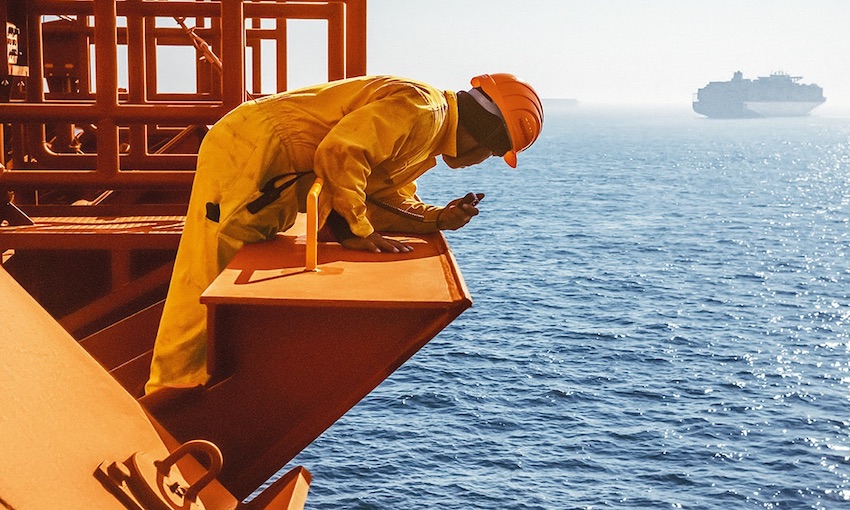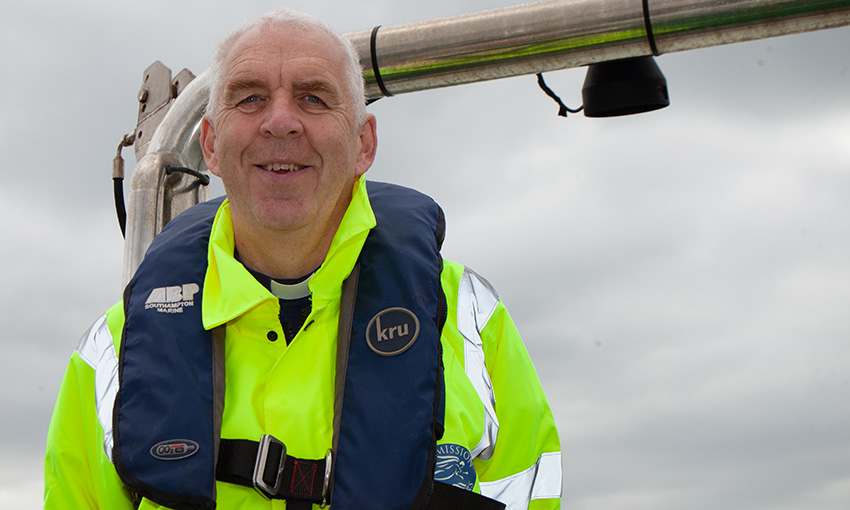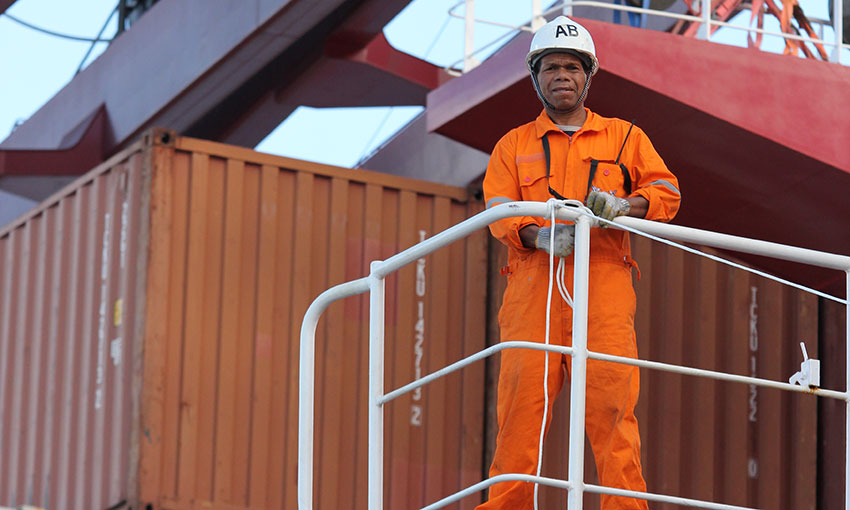THE latest report from the Seafarers Happiness Index has revealed the long-term impact the pandemic is having on seafarers, reiterating a call for key worker status and investment in seafarer support.
Published by the Mission to Seafarers, the annual review indicates the measure of seafarers’ overall happiness has dropped to 6.41 in the fourth quarter of 2021, down from 6.59 in the previous quarter.
It describes 2021 as a “yo-yo year” for seafarers’ happiness trends, reflecting the challenges of an unpredictable year and waves of COVID infections.
With support from Wallem Group and the Standard Club, the Seafarers Happiness Index measures seafarers’ wellbeing through a survey of ten key questions about life and work at sea.
Lack of key worker recognition
The latest survey results reflect seafarers’ concerns relating to the lack of key worker recognition and limited freedom of movement.
“With different variants emerging, new waves of infections and fluctuations between freedom and lockdown, seafarers are dealing with constant uncertainty,” MTS secretary-general Andrew Wright said.
“This confirms the importance of key worker status for our seafarers, which will help ensure crew changes regardless of how the pandemic develops and support the logistics of crew travel.”
Wallem Group CEO John-Kaare Aune said the findings of the annual review are concerning, particularly the fluctuations in seafarer happiness.
“Despite seafarers undeniably qualifying as ‘key workers’ in our eyes, governments are not affording them the respect and recognition that their efforts so clearly merit,” he said.
“The ongoing crew change crisis, which has directly affected many of Wallem’s own seafarers, highlights the need for an international conversation on crew welfare.”
National decisions impacting international seafarers
The survey results also suggest seafarer sentiment has improved where international movement and economies have opened up, however, happiness has fallen where rising infection rates and restrictions have impacted seafarers’ movements.
Noting this correlation, the report highlights how national decisions impact international seafarers, contributing to what has been described as a wellbeing crisis.
“Governments must collaborate to facilitate crew changes and ensure that ship personnel can access critical services and assistance – including medical care, emotional support, shore leave and repatriation – whenever required,” Mr Aune said.
According to the report, seafarers have raised concerns about “the draconian nature” of repeated COVID testing, as well as the quality of quarantine provision.
Survey respondents said relationships onboard are strained and cases of bullying, harassment, and frictions on ships are increasing.
The number of seafarers considering career changes has grown, indicating a shortage of seafarers and replacement crews is imminent.
Progress is reportedly being made in the provision of phone and internet connectivity on vessels, though there is a growing connectivity gap between crews who are given free or affordable access, and those who aren’t.
The report also noted a shortage of vaccinations, and a perception that the profits of shipping companies are not being fed back into the seafaring workforce.
Some seafarers reported a drop in safety standards on vessels, and an apathy toward practical training for emergencies, which may be consequential to the length of time many seafarers are now spending at sea.
The Seafarers Happiness Index report emphasised a need for careful, considered management to encourage seafarers to continue to engage with safety measures.
Reflections on 2021
Mr Wright said the findings of the 2021 report should influence progress in seafarer welfare over the coming year.
“Looking at the results of 2021 as a whole, we hope this report will encourage organisations to recognise the lessons for 2022, when it comes to investing in their seafarers, whether it is continuing to improve connectivity, adjusting working hours, or enhancing training,” he said.
“It is about understanding the challenges and making a difference to support the men and women serving at sea.”
Mr Aune reinforced the role seafarers have played in keeping international supply chains moving.
“In what has been the most challenging period in recent history for many of us, these brave women and men have sacrificed more than most, facing unthinkable circumstances to ensure the global supply chain remains intact, the wheels of trade keep turning and our supermarket shelves stay stocked,” he said.
Captain Yves Vandenborn, the Standard Club’s director of loss prevention, said the report highlights a lack of regard for seafarers’ welfare and dignity.
“Analysis and extrapolation of 2021 results indicate that there is much to be done,” he said.
“The ability to call home, take shore leave, undergo training and enjoy protected rest hours should be standard for all. Taking care of our people is in all of our interests.”





